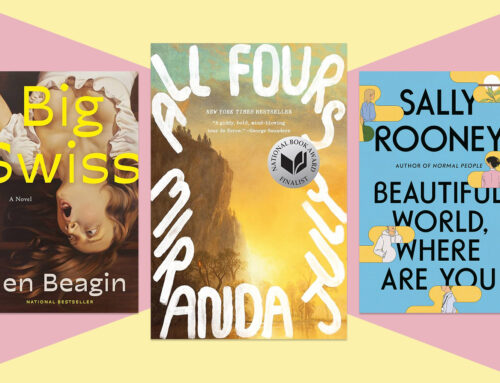“I’m a, I’m a, I’m a cool girl, I’m a, I’m a cool girl.” The repetition of “cool girl” in Tove Lo’s song sticks in my mind long after I’ve finished listening to the song—and not only because of its catchiness. I wonder, what is a cool girl? Am I a cool girl? Do I want to be a cool girl?
Youtube Channel The Take states in their video, “The Cool Girl Trope, Explained,” that the “cool girl” trope was first given a name by Gillian Flynn in her novel Gone Girl. Defining qualities of the cool girl is that she is one of the guys, has a passion for cars or sports or other stereotypical male activities. She’s fun-loving, raunchy and uninhibited. She likes junk food and beer while maintaining an effortlessly hot body. She’s easy-going and never gets angry. And, most importantly, she is not like the other girls.
In movies, the cool girl reflects the male protagonists’ interests – someone who is the composite of male desire, someone who is paradoxically living a “masculine” lifestyle but exists at the pinnacle of femininity when it comes to her external appearance. Simply a pretty bundle of male fantasies, the cool girl is a myth. Even if the girl has many badass qualities, it doesn’t mean anything unless she is incredibly hot. The cool girl is cool only as long as she’s conforming and “chill”. Seeing as the cool girl never gets angry, she never tries to change anything or question her position in the male gaze. The fate of the “cool girl” character in Gone Girl clearly shows that there is always a toxic fallout of women expecting to live up to this fantasy. In other words, the cool girl act has a time limit.
There are many examples within films and TV shows of the cool girl. For instance, Donna Pinciotti from “That 70s Show.” She’s intelligent, witty, strong, athletic, confident, easy-going and what’s more – hot. On her radio show that she hosts, she’s even given the nickname “Hot Donna.” Yet, she’s also a tomboy and talks about how she used to wrestle with the boys. Another cool girl from a sitcom is Robin Scherbatsky from “How I Met Your Mother.” She drinks Scotch with the guys, smokes cigars, and loves guns. What’s more, she hates commitment. Although she wears suits more than she wears dresses, she seems to always show cleavage to make sure that the sex appeal is still there. In the superhero world, a clear cool girl is MCU’s (Marvel Cinematic Universe) Black Widow. She’s a badass fighter, but her costume is elastic and form fitting – to ensure that she embodies a conventionally hot appearance. However, against her male superhero counterparts, Black Widow is still seen primarily as an object of their attraction with Male MCU loving and lusting after Black Widow. The list of cool girl characters seems to be unlimited. Yet watching these cool girls, female viewers are unable to identify with them. The cool girl character serves male creators and viewers, who seek an onscreen pleasure, while creating an impossible standard for women.
Cool girls aren’t only seen in fiction culture. A key celebrity example of a cool girl is Jennifer Lawrence. She is constantly talking about food like burgers, buffalo wings or potato skins on the red carpet. She tripped up the stairs when collecting her Oscar and then talked about how she drank a shot before her interview. However, it seems as if “Gone Girl” was correct in the idea of a cool girl having a time limit as it seems that Jenifer Lawrence has grown out of performing the cool girl trope. While the cool girl trope may seem appealing, because it is so desired by both men and women, the cool girl trope is harmful. It transforms women into unrealistic, imaginary objects.
We can definitely extract the badass, confident aspects of the cool girl as traits to follow and appreciate, yet as women, we cannot allow ourselves to feel comfortable being measured against a male gaze. The Take video ends with saying that the total liberation of the cool girl will come when she stops trying to get by in a man’s world and starts working towards a world where women are free to be whoever they want to be.
So, yes. I probably do fall into the cool girl trope sometimes. After all, I have grown up watching these girls on screen. However, I don’t want to be a cool girl because they are a myth. A male fantasy. And, most importantly, I am like other girls, and I’m proud to be.






